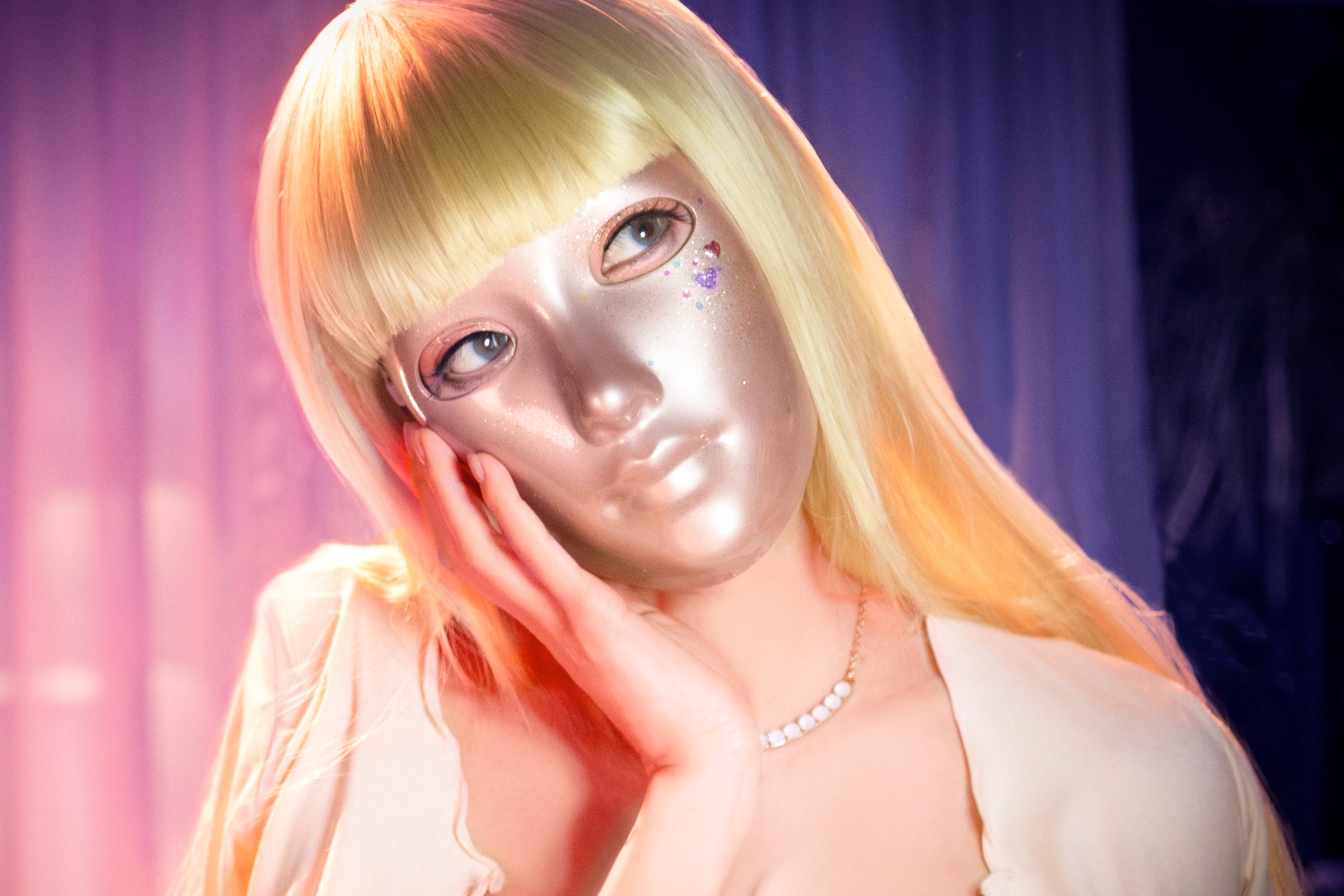Since Netflix’s runaway success with Squid Game, the 2021 South Korean series about a gory game that pitted money-strapped players against one another, the streamer has doubled down on its investment in Korean film and television in hopes of striking gold again. Now, with a new Korean drama that has rapidly climbed to the top of the charts amid word-of-mouth hype, Netflix may have finally found its next hit, one with as much dark thrill, sociocultural commentary, and global appeal as Squid Game.
Mask Girl, the K-drama in question, starts with a simple cause and effect: A woman’s lifelong dreams of becoming a pop idol are hindered by society’s decree that she’s too unattractive, spurring her to don a mask and livestream titillating content as the internet personality “Mask Girl” instead. Where Squid Game stays within the boundaries of a bloody story about class and capitalism—literally confined to a death pit on a private island—Mask Girl, which was adapted by director Kim Yong-hoon from a webtoon, jumps across time and between protagonists to become something more expansive. It offers unique social critique on not just beauty standards, but also the generational effects of patriarchal violence, the dangerous intersection of desire and obsession, and how the internet can facilitate that fixation, to name a few.
Mask Girl is trisected with two major time jumps, and three different actors play Mask Girl (whose real name is Kim Mo-mi) as she goes from unassuming office worker-slash-camgirl to criminal (to spare the more spoiler-y details). The first part of the story is perhaps the most successful, showing how Kim—played by newcomer Lee Han-byeol—balances her double life, and how her nocturnal alter ego’s popularity forces her to deal with an obsessed fan. It’s tricky to acutely portray how an earnest yet deluded fan’s obsession can turn them into a dangerous person; earlier this year, Donald Glover and Janine Nabers’ show Swarm tried to chart the same journey, expertly deconstructing the psychology of a psychopath, but it failed to connect that psychology to a larger statement about fan culture and obsession.
But Mask Girl pulls it off perfectly. It’s a character study, first and foremost, giving the audience ample time in each of the characters’ worlds before revealing the ways that they all—and I do mean all—gravely need therapy. Those shifts in perspective and sympathy work tremendously, coupled with the show’s tone—sometimes funny, always dark, not unlike the balance that Oldboy director Park Chan-wook strikes in his films—and look. Gorgeous cinematography and carefully considered set design—the contrast between the vivid neon of Mask Girl’s online world and the dull, muted colors of her unsatisfactory daily life—round out the package, successfully welcoming viewers into the world of a character, before quickly shutting us out with a stark comedown to reality.
If the first third of the series is delicately wrought, then the middle section—wherein the titular character is now played by K-pop idol Nana, formerly of the group After School—is potent. It’s here that the myriad violences that men impart unto women are emphasized once more, the reinforcing of a central theme. Sexual and domestic violence start the chain reaction of events that go on to derail the lives of every character. Although the show goes beyond a black-and-white narrative of victimization, and it depicts women as smart, dedicated, and resourceful, it doesn’t detract from the fact that women are forced to use those skills in precarious situations because of men. Whether it’s the way patriarchal beauty standards have ostracized women or the way male desire, in tandem with male entitlement, has given men an inflated sense of ownership over women’s bodies and livelihoods, the effects of men are what the show’s complex female characters are trying to outrun to the end.
By the third act, although only women remain in the narrative, the repercussions of male actions are still felt. Mask Girl, ultimately, is a story of how perverted or obsessive desires turn ordinary people into dangerous ones, how those dangers become actualized urgently by the physical threat and power of men, and how patriarchal violence has brought these women to their lowest points, left to blame and brawl with one another in the mud, even long after male characters have left the picture. In its final third, in which an older Kim is played by veteran actor Go Hyun-jung, Mask Girl travels to the farthest regions of its story, going off the rails in pursuit of the most extreme consequences of what it has set in motion. This statement-making shift draws the series away from the more precise threads that the first two parts pull on, at times to the detriment of the story. But, for better or worse, Mask Girl has the guts to fully go to those extreme places, shedding a white-hot light on the lasting effects of our treacherous desires along the way.
